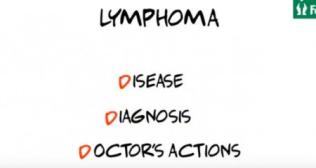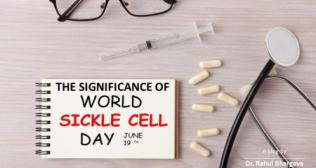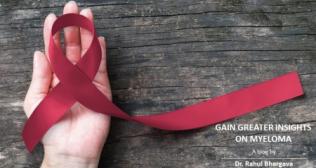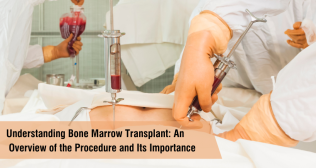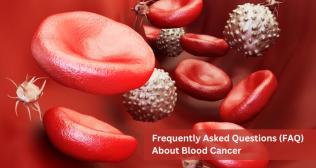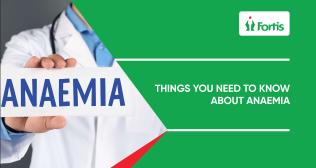
Anaemia Treatment Hospital in Mumbai India
Best Hospital for Anaemia Treatment in Mumbai, India
Fortis Hospital Mumbai, Department of Hematology offers a comprehensive diagnosis and treatment for all forms of anaemia. Our doctors are nationally and internationally recognised as leaders in the treatment and management of anaemia and other blood disorders.
Team
Our multi-disciplinary anaemia treatment team ensures personalised care:
- Bone marrow transplant surgeons
- Haematologists
- Oncologists
- Paediatricians
- Anaesthetists
- Well-trained transplant nurses, transplant coordinators, social workers, psychologists and clinical nutritionists.
Our Blood Bank has leading Transfusion Medicine experts taking care of stem cell collection (apheresis method), cryopreservation and 24x7 services related to blood platelet and blood products.
The team is well supported by intensive care specialists, radiologists and clinical pharmacologists.
What is Anaemia?
Anaemia is a condition that occurs as a result of either not having enough red blood cells to carry oxygen around the body, or having faulty red blood cells that can’t carry adequate oxygen to your organs and tissues. Anemia is measured according to the level of haemoglobin in your blood - haemoglobin is a protein in RBCs that carry oxygen throughout the body. According to the World Health Organisation, anaemia is a serious global health concern that particularly affects pregnant women and young children.
Signs and symptoms of Anaemia?
People with anaemia may experience symptoms, including:
- Fatigue
- Weakness
- Pale skin, nails, or gums
- Cold hands and feet
- Headaches
- Light-headedness
- Chest pain
- Irregular heartbeat
- Shortness of breath
People with mild anaemia may experience a few or no symptoms. If you have prolonged fatigue or other signs of anaemia, make an appointment with a haematologist for further assessment and treatment.
Types and causes of Anaemia
There are many forms of anaemia, which have different causes. They include:
- Iron deficiency anaemia – this is the most common type of anaemia caused by a shortage of iron in the body, often because of blood loss, pregnancy, or not getting the recommended daily amount of iron in the diet.
- Vitamin deficiency anaemia – this type of anaemia occurs due to low dietary intake of folate, vitamin B12, and other key nutrients, resulting in decreased red blood cell production.
- Aplastic anaemia – this rare, life-threatening anemia occurs when your bone marrow doesn’t make enough red blood cells. It is commonly caused by autoimmune diseases, infections, certain medications, inherited genetic changes, and exposure to toxins, etc.
- Haemolytic anaemia – this group of anaemia happens when red blood cells are destroyed faster than bone marrow can replace them. Causes of haemolytic anaemia include autoimmune activity, infections, physical damage to red blood cells, inherited conditions, exposure to toxic chemicals, etc.
- Sickle cell anaemia – this is a serious inherited condition caused by a defective form of haemoglobin that forces RBCs to be shaped like sickles or crescents.
- Anaemia of inflammation – certain conditions that cause inflammation in the body, such as cancer, HI, tuberculosis, kidney disease, Crohn’s disease, can interfere with RBC production. This can cause anaemia of inflammation or chronic disease.
- Anemias associated with bone marrow disease – some diseases like leukaemia and myelofibrosis affect blood production in your bone marrow, causing anaemia.
How is Anaemia diagnosed?
One of our haematology doctors will ask you about your symptoms, and medical and family history, and examine you on the day of your appointment at our Anaemia Clinic. Our hospital offers a complete range of diagnostics to detect anaemia and identify the underlying cause, ensuring each patient receives the best possible treatment. Tests used to diagnose anaemia include:
- Blood tests – complete blood count to measure the amount of haemoglobin in the blood and show the size and shape of RBCs. Other blood tests may include vitamin B12 and folate levels, ferritin and iron saturation levels, blood chemistry tests, etc.
- Urine test – to detect blood in the urine.
- Bone marrow biopsy – a bone marrow test is rarely required and only will be done by a specialist in the hospital.
If you’ve been diagnosed with anaemia, you may be recommended additional tests to determine the cause.
How is Anaemia treated?
Treatment for anaemia depends on the cause and disease severity. Once anaemia is diagnosed, our expert haematologists will develop a personalised treatment plan that best meets your needs. Treatment options may include:
- Iron supplements
- Vitamin B12 or folate supplements
- Medications
- Immunosuppressive therapy
- Blood transfusions
- Surgery
- Bone marrow transplants
- Splenectomy
While anaemia is often treatable, it can still be fatal if it’s left untreated. Seek medical help for testing if you feel persistently tired or weak. Some people can prevent or manage anaemia by following a healthy diet.
Why Choose Fortis Hospital Mumbai for Anemia Treatment in India?
At the Fortis Hospital Mulund Anaemia treatment centre, our multi-disciplinary team, including haematologists and other specialists, utilise a collaborative approach to provide you with the most advanced comprehensive care possible. We offer a state-of-the-art infusion facility with lab testing and pharmacy facilities under one roof. Our anaemia treatment clinic in Mumbai, India offers comprehensive and supportive aftercare follow-up, which means each patient’s treatment can be actively adjusted and optimised in response to their unique needs.
Neurology Hospital in Mumbai | Kidney Transplant Hospital in Mumbai | Cancer Hospital in Mumbai | Bone Marrow Transplant Hospital in Mumbai | Heart Hospital in Mumbai | Breast Cancer Hospital in Mumbai | Mouth Cancer Hospital in Mumbai | Anemia Hospital in Mumbai | Heart Failure Treatment in Mumbai | Emergency Hospital in Mumbai | Radiation Therapy in Mumbai | Eye Hospital in Mumbai | Kidney Cancer Hospital in Mumbai
Categories
Clear allMeet the doctor

- Haematology | Haematology | Paediatric Haematology and BMT
-
14 Years
-
2000








